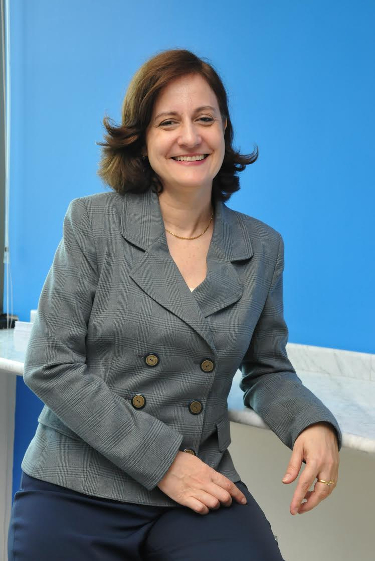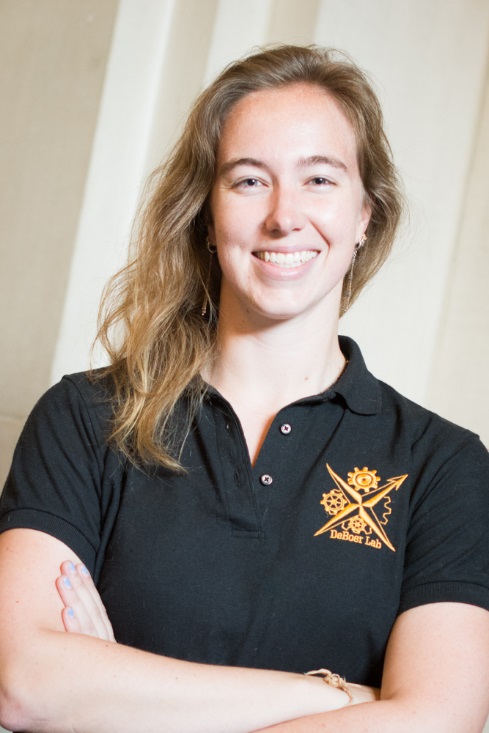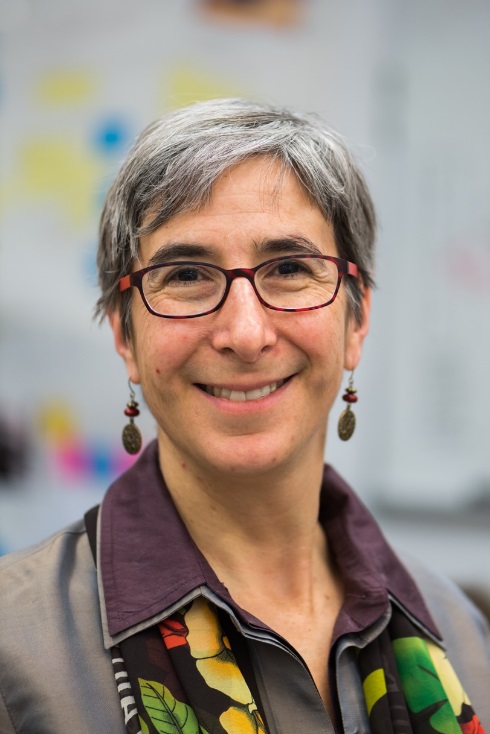Roseli de Deus Lopes (Universidade de São Paulo, Brasil)
 Roseli de Deus Lopes is Associate Professor at Escola Politécnica (School of Engineering), Universidade de São Paulo (USP). She is the vice-chair of CITI-USP (Centro Interdisciplinar em Tecnologias Interativas) and researcher at LSI-USP (Laboratório de Sistemas Integráveis), where she coordinates research projects in interactive electronic media, with emphasis on applications in education, inclusion and health. She is one of the founders of Poli-Edu, a research group on Engineering Education at POLI-USP. She served on the technical/pedagogical working group for the One Computer per Student (UCA), sponsored by the Brazilian Ministry of Education. She coordinates projects aimed at identifying and developing talents in STEM, such as FEBRACE, the largest national pre-college science and engineering fair in Brazil, and InovaLab@POLI, an initiative to provide resources and educational expertise to broaden project-based learning and rapid prototyping for engineering undergraduate students. Recently, she served as a member of Program and Organizing Committees at FabLearn Brazil Conference 2016, Scratch Conference Brazil 2017 and STEM TechCamp Brasil 2018. Currently, she serves as a Director at SBPC, the Brazilian Society for the Progress of Science and Technology.
Roseli de Deus Lopes is Associate Professor at Escola Politécnica (School of Engineering), Universidade de São Paulo (USP). She is the vice-chair of CITI-USP (Centro Interdisciplinar em Tecnologias Interativas) and researcher at LSI-USP (Laboratório de Sistemas Integráveis), where she coordinates research projects in interactive electronic media, with emphasis on applications in education, inclusion and health. She is one of the founders of Poli-Edu, a research group on Engineering Education at POLI-USP. She served on the technical/pedagogical working group for the One Computer per Student (UCA), sponsored by the Brazilian Ministry of Education. She coordinates projects aimed at identifying and developing talents in STEM, such as FEBRACE, the largest national pre-college science and engineering fair in Brazil, and InovaLab@POLI, an initiative to provide resources and educational expertise to broaden project-based learning and rapid prototyping for engineering undergraduate students. Recently, she served as a member of Program and Organizing Committees at FabLearn Brazil Conference 2016, Scratch Conference Brazil 2017 and STEM TechCamp Brasil 2018. Currently, she serves as a Director at SBPC, the Brazilian Society for the Progress of Science and Technology.
Jennifer DeBoer (Purdue University, USA)
 Jennifer DeBoer obtained her Ph.D. in international education policy studies from Vanderbilt University in 2012 and two bachelor's degrees in mechanical engineering and foreign languages from MIT. Before joining the faculty of engineering education at Purdue in 2014, she served as a postdoctoral associate for education research at MIT.
Jennifer DeBoer obtained her Ph.D. in international education policy studies from Vanderbilt University in 2012 and two bachelor's degrees in mechanical engineering and foreign languages from MIT. Before joining the faculty of engineering education at Purdue in 2014, she served as a postdoctoral associate for education research at MIT.
Dr. Jennifer DeBoer is currently Assistant Professor of Engineering Education at Purdue University. Dr. DeBoer strives to better understand and support diverse students around the world as they are empowered to access, develop, and meaningfully apply engineering knowledge, skills, and attitudes. Her work is founded on three important pillars: investigating the ways in which diverse individual students and their experiences are informed by a complex set of contextual background factors; comparing and contrasting the contexts, histories, economies, and social structures of systems of education around the world; and understanding that individual and institutional factors mediate and moderate interactions with technologies and tools to access engineering education. Her integrated research, teaching and mentoring, and service activities therefore look at international and comparative educational settings, technologies and tools that facilitate learning, and the sociological context of education.
Currently, she is investigating the use and effectiveness of online learning programs for displaced youth and adult learners and the participation of women and underrepresented groups in engineering training around the world. She serves as associate editor for the IEEE Transactions on Education. She has been awarded multiple grants and awards from the National Science Foundation (NSF), the American Education Research Association, and the Ford Foundation. During her first year as assistant professor, she received the NSF’s prestigious Early CAREER Award.
Presentation for Download: Active Inclusion in Engineering Education
Lynn Andrea Stein (Olin College of Engineering, USA)
 Lynn Andrea Stein is Professor of Computer and Cognitive Science and Special Advisor to the Provost at Olin College of Engineering. Following a decade as an MIT EECS professor, Stein joined Olin College’s founding faculty in 2000, co-creating innovative curricula and a college-wide laboratory for educational innovation. From 2009, she led Olin’s efforts to collaboratively transform higher education in America and throughout the world, inaugurating the positions of Associate Dean for External Engagement and Initiatives and Director of Olin’s Collaboratory.
Lynn Andrea Stein is Professor of Computer and Cognitive Science and Special Advisor to the Provost at Olin College of Engineering. Following a decade as an MIT EECS professor, Stein joined Olin College’s founding faculty in 2000, co-creating innovative curricula and a college-wide laboratory for educational innovation. From 2009, she led Olin’s efforts to collaboratively transform higher education in America and throughout the world, inaugurating the positions of Associate Dean for External Engagement and Initiatives and Director of Olin’s Collaboratory.
Stein's research focuses on the role that interaction plays in both computational and cognitive processes. Her projects have included the construction of an artificial humanoid and an intelligent room, philosophical and pragmatic work from knowledge representation to the semantics of cognition, and co-authorship of foundational documents for the semantic web. Over the past three decades, Stein has also led innovations in computing and engineering curricula including pioneering educational applications of inexpensive robotics, an innovative curriculum for introductory computer science, and an award-winning interdisciplinary, cross-generational design immersion.
As an international advocate for student-centered education and inclusive environments, Stein builds systems and programs for transformation, runs workshops to stimulate curricular creativity, consults with a wide range of US and international institutions, serves on curricular advisory boards, speaks frequently at educational conferences, and embeds in sites to cause trouble and create constructive change.
Stein has received the National Science Foundation Young Investigator Award, a Mary Ingraham Bunting Fellowship, the Helen Plants Award of the American Society for Engineering Education, as well as several teaching awards. She has served on the Executive Council of Association for the Advancement of Artificial Intelligence, in leadership roles in the Association for Computing Machinery, and in various leadership and advocacy positions as a woman in computing. In 2017-2018, Stein is a Fellow of the American Council on Education.